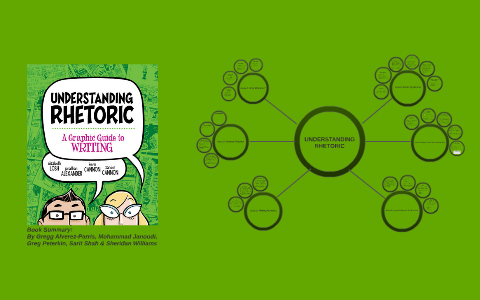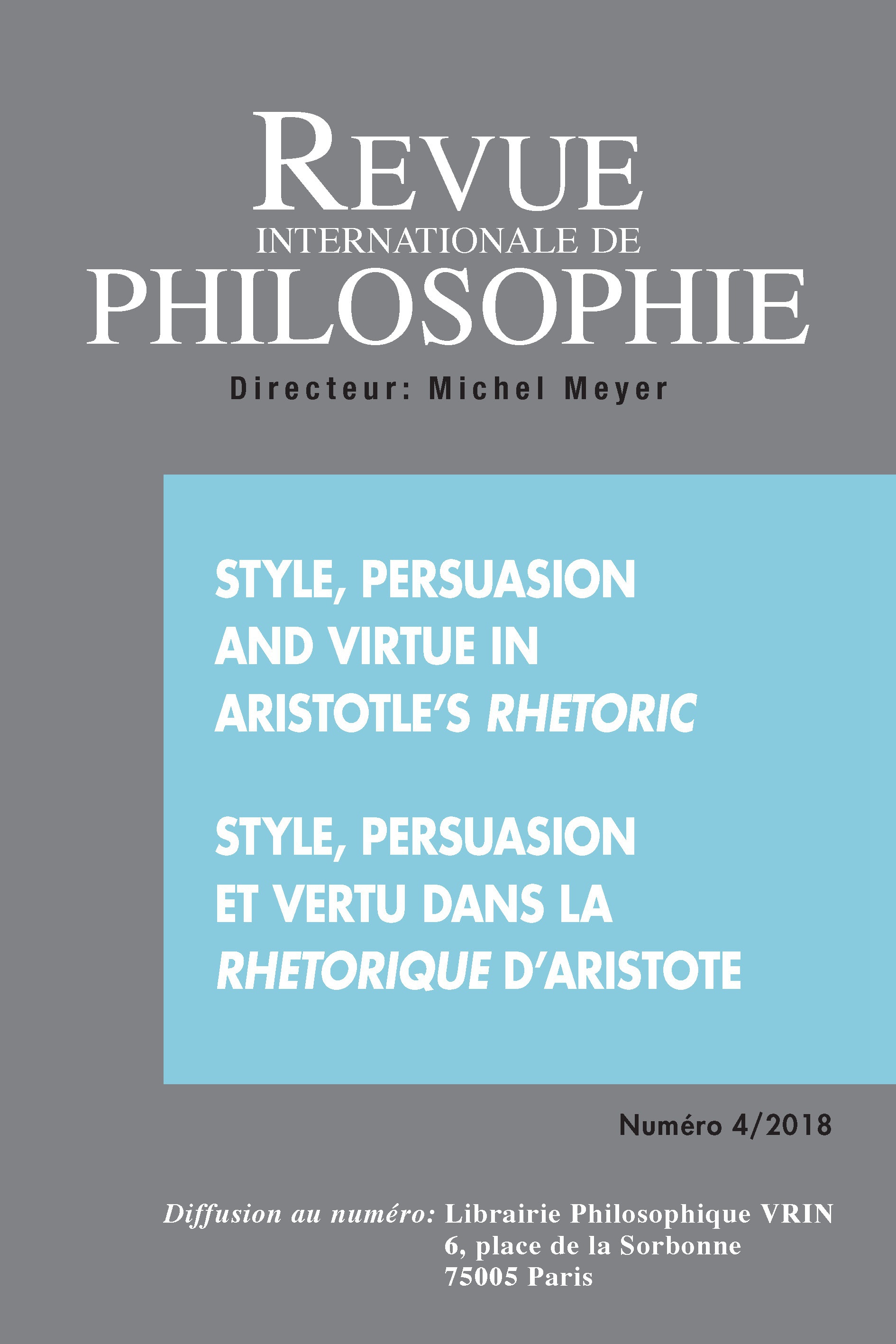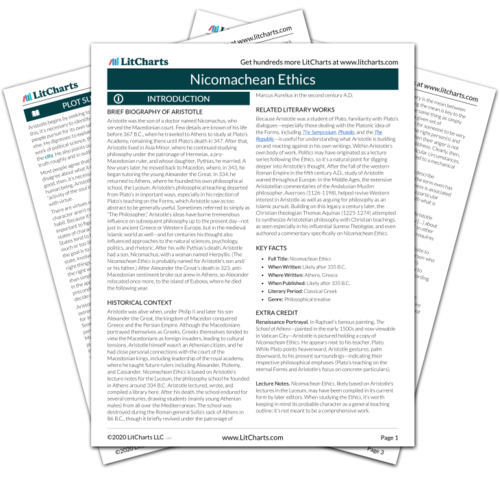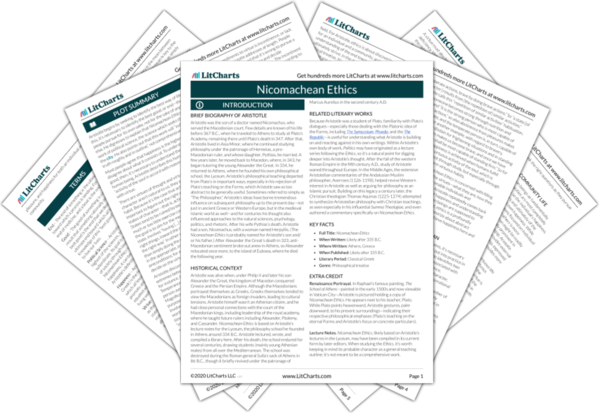The rhetorical form of apodeixis is enthymeme. Useful to men Pisteis formed of common beliefs. aristotle rhetoric book 1 chapter 2 summary.
Aristotle Rhetoric Book 1 Chapter 2 Summary, Possibility most useful for deliberative. Aristotle seems to be proceeding with the assumption that the same is true for poetry. Consequently he treats political rhetoric first.
 Understanding Rhetoric Book Summary By Mohammad Izzid Deen Janoudi From prezi.com
Understanding Rhetoric Book Summary By Mohammad Izzid Deen Janoudi From prezi.com
Rhetoric Book 2 Chapters 19-26 Summary Analysis Book 2 Aristotle introduces four common lines of argument or topoi singular topos in Greek found in all three branches of oratory. Book 1 Chapter 2 1094a20-1094b11 Aristotles interested in finding out what the highest human good might be so he sets about trying to describe the general characteristics of this good. 1 That is why Rhetoric assumes 2 the character of Politics and those who claim to possess it partly from ignorance partly from boastfulness and partly from other human weaknesses do the same.
Object of Rhetoric is Judgment.
This detailed literature summary also contains Topics for Discussion and a Free Quiz on On Rhetoric. Logos logical reasoning ethos. In some cases what Aristotle says seems quite right while in others his conclusions seem very limiting. Thus it appears that Rhetoric is as it were an offshoot of Dialectic and of the science of Ethics which may be reasonably called Politics. And since an appeal to the speakers own character and to the passions of those who are to give the judgement is bound to carry great weight the speaker must be provided with rules for ethical and pathetic emotional proofs. Its growth and development has been guided by unchanging natural laws and the Poetics seeks to uncover these laws.
Another Article :

He called them stupid. A second group of poets imitated the actions of meaner persons in the form of satire. Book 1 Chapter 2 1094a20-1094b11 Aristotles interested in finding out what the highest human good might be so he sets about trying to describe the general characteristics of this good. Once poetry emerged it evolved in two directions. And since an appeal to the speakers own character and to the passions of those who are to give the judgement is bound to carry great weight the speaker must be provided with rules for ethical and pathetic emotional proofs. Ppt Aristotle S Rhetorical Triangle Powerpoint Presentation Free Download Id 4778478.

And since an appeal to the speakers own character and to the passions of those who are to give the judgement is bound to carry great weight the speaker must be provided with rules for ethical and pathetic emotional proofs. Book 1 Chapter 3. Aristotle points out that he will be satisfied to indicate the truth roughly and in outline and that his claims should be accepted in that same spirit. And since an appeal to the speakers own character and to the passions of those who are to give the judgement is bound to carry great weight the speaker must be provided with rules for ethical and pathetic emotional proofs. Book 1 Chapter 2 1094a20-1094b11 Aristotles interested in finding out what the highest human good might be so he sets about trying to describe the general characteristics of this good. Aristotle S On Rhetoric Book 1 Ch 1 3 By Toby Coley.

A Brief Summary Book I Rhetoric is the antistrophos counterpart or even correlative of dialectic and can be treated systematically. Angry audiences are less likely to accept the evidence that a. Here he introduces the term enthymeme Book 113. He explains the similarities between the two but does not comment on the differences. Book I Chapters 1-3 Summary and Analysis. Aristotle S Rhetoric On Rhetoric S Definition And Limits Cairn International Edition.
21111 1377b1388b Ethical and Pathetic Proofs. Aristotle seems to be proceeding with the assumption that the same is true for poetry. Rhetoric primarily concerned with pisteis and with truth. But since the function of Rhetoric is to find the available means of persuasion and its end is a judgement. Here he introduces the term enthymeme Book 113. 2.

We will cover legal rhetoric when we read the other classical rhetorical manuals. As Aristotle sees it poetry emerged for two reasons – 1 mans instinct to imitate things and 2 the instinct for harmony and rhythm. Rhetoric Book 2 Chapters 19-26 Summary Analysis Book 2 Aristotle introduces four common lines of argument or topoi singular topos in Greek found in all three branches of oratory. Aristotle seems to be proceeding with the assumption that the same is true for poetry. Aristotle identifies three means of rhetorical persuasion in Chapter 2 which are logos ethos and pathos. Thesis Statement Templates 11 Free Ms Word Excel Pdf Rhetorical Analysis Rhetorical Analysis Essay Thesis Statement.

A second group of poets imitated the actions of meaner persons in the form of satire. Book 1 Chapter 2 1094a20-1094b11 Aristotles interested in finding out what the highest human good might be so he sets about trying to describe the general characteristics of this good. Aristotle identifies three means of rhetorical persuasion in Chapter 2 which are logos ethos and pathos. The results are mixed. One group of poems imitated noble actions or the actions of good men. Rhetoric Alive Book 1 Principles Of Persuasion Student Edition Classical Academic Press.

And magnitude or the relative greatness of things most useful for epideictic. 21111 1377b1388b Ethical and Pathetic Proofs. It defines pisteis multiple πῐστῐς pstis illuminated. Speakers character important for deliberative oratory Judges frame of mind more important for forensic oratory. Argumentative persuasion involves pisteis which are a kind of apodeixis demonstration. Speech In The Virginia Convention By Patrick Henry Rhetorical Strategies Ethos Pathos Logos Are Importa Ethos Pathos Logos Teacher Guides Pre K Lesson Plans.
Object of Rhetoric is Judgment. As Aristotle sees it poetry emerged for two reasons – 1 mans instinct to imitate things and 2 the instinct for harmony and rhythm. 2 The instructions given for enthymematic or logical proof should suffice. Aristotle has already stated that political rhetoric is the most noble and that legal rhetoric the least. Useful to men Pisteis formed of common beliefs. 2.

He explains the similarities between the two but does not comment on the differences. Aristotle writes in Book 2 Chapter 1 that the orators own character should look right when delivering a political speech. Future possibility also useful for deliberative. So the political orator is concerned wthe future. Book I Chapters 1-3 Summary and Analysis. Nicomachean Ethics Book 1 Summary Analysis Litcharts.

The usefulness of rhetoric. Knowledge of this good would be of great value for it would provide an aim for life and a standard by which to evaluate all other activities and thoughts. He called them stupid. Rhetoric Book 2 Chapters 19-26 Summary Analysis Book 2 Aristotle introduces four common lines of argument or topoi singular topos in Greek found in all three branches of oratory. 1 That is why Rhetoric assumes 2 the character of Politics and those who claim to possess it partly from ignorance partly from boastfulness and partly from other human weaknesses do the same. Aristotle S Rhetoric Book 1 Chapter 3 By Anabel Frias.

Knowledge of this good would be of great value for it would provide an aim for life and a standard by which to evaluate all other activities and thoughts. Is perceiving the suasive in any subject via. The usefulness of rhetoric. A Theory of Civic Discourse by Aristotle. Knowledge of this good would be of great value for it would provide an aim for life and a standard by which to evaluate all other activities and thoughts. Pin On Ma English Entrance Online Coaching Class Ignou.

Aristotle points out that he will be satisfied to indicate the truth roughly and in outline and that his claims should be accepted in that same spirit. The truly best good would be something that we work and wish for as an end. The true and the just are naturally superior to their opposites General audiences lack the ability to follow scientific reasoning Rhetoric proves opposites in order to counteract false arguments. 2119 1377b1378a General Discussion of Ethos. And since an appeal to the speakers own character and to the passions of those who are to give the judgement is bound to carry great weight the speaker must be provided with rules for ethical and pathetic emotional proofs. Nicomachean Ethics Book 1 Summary Analysis Litcharts.

Rhetoric deals with contingent matters. The truly best good would be something that we work and wish for as an end. If there should exist an end which is desirable for its own sake which determines and motivates all other actions and choices this end would be that which is absolutely good. Isnt that Aristotles rhetorical triangle. He notes that the mood of the audience can alter the verdict when speeches are delivered in legal proceedings. Aristotle S Rhetorical Triangle Created By Brett Oppegaard For Washington State University Vancouver S English 402 Section 5 Class Spring Ppt Download.

Aristotle identifies three means of rhetorical persuasion in Chapter 2 which are logos ethos and pathos. We will cover legal rhetoric when we read the other classical rhetorical manuals. The Rhetoric is divided into three books or sections. Aristotle identifies three means of rhetorical persuasion in Chapter 2 which are logos ethos and pathos. Summary 1215 1355b1377b Analysis of Rhetoric as a System 1215. Aristotle S Rhetoric Book 1 Chapter 1 Youtube.

Past fact most useful for forensic. Three musketeers of persuasion. Book 1 Chapter 2 1094a20-1094b11 Aristotles interested in finding out what the highest human good might be so he sets about trying to describe the general characteristics of this good. Rhetoric Book 2 Chapters 19-26 Summary Analysis Book 2 Aristotle introduces four common lines of argument or topoi singular topos in Greek found in all three branches of oratory. Logos is the ability to reason logically by using arguments to form valid conclusions. Pdf A Rhetorical Analysis Of Jeremiah 7 1 15.










